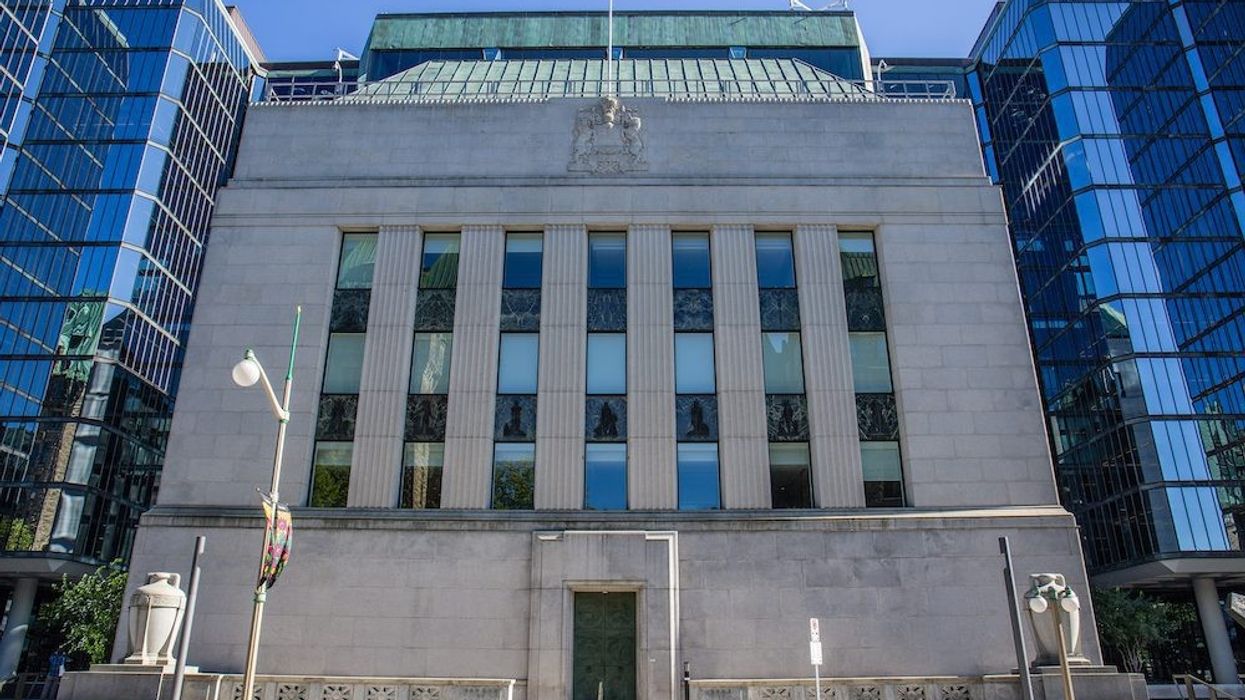Rapid interest rate hikes from the Bank of Canada (BoC) are leaving the door wide open for a recession, a new study from the Canadian Centre for Policy Alternatives (CCPA) finds.
The BoC, in an attempt to tamp down inflation by 5.7%, has implemented a series of hikes, raising its Overnight Lending Rate from a historically low 0.25% to 1.5% as of June 1. With more rate hikes expected in the coming months, and some even predicting the BoC will copy the U.S. Federal Reserve's 0.75% June raise, CCPA is warning of a likely recession that will come along with them.
CCPA Senior Economist David Macdonald, the author of the study, notes that in modern Canadian history, there are three times in which the Consumer Price Index has fallen at least 5.7% -- between 1974 and 1976, 1981 and 1983, and 1991 and 1992 -- each of which was accompanied by a recession.
"History tells us that the Bank of Canada has a 0% success rate in fighting inflation by quickly raising interest rates," Macdonald wrote. "If a pilot told me that they’d only ever attempted a particular landing three times in the past 60 years with a 0% success rate, that’s not a plane I’d want to be on. Unfortunately, that looks likes the plane all Canadians are on now."
As of May, Canada's inflation rate had skyrocketed to 7.7%, well above the BoC target of 2%. Although BoC Governor Tiff Macklem has said they will get Canada there with a "soft landing," Mcdonald says there is no evidence that this is possible, noting that every time there has been such a steep drop in inflation, it's been a "crash landing."
"Using rapid interest rate hikes to deflate the economy is a blunt, non-targeted approach that creates tremendous collateral damage," Macdonald wrote. "It’s time for a new policy on inflation that isn’t just 'jack up interest rates.' That old approach will drive us right back into another recession."
What the BoC isn't considering, but should, Macdonald says, is the disastrous effects this could have on both job numbers and wages. Given the changes in employment rates historically seen in instances of steep inflation decreases, an expected 850,000 Canadians would lose their jobs, the study finds. If the effects were to be in line with the worst recorded job loss while fighting inflation, which happened between 1981 and 1983 when the employment rate fell 4.2%, a staggering 1.3M Canadians would be put out of work.
"Any way you slice it, a fight against inflation using interest rates will also be a fight against jobs," Macdonald wrote. "The irony here is that the economy and labour markets are strong, with the unemployment rate sitting at 5.1% in May, below where it stood pre-pandemic. Yet despite a strong labour market, workers haven’t seen wage increases keep up with the rate of inflation, so a majority Canadians are falling behind in real purchasing power."
Even if the BoC were to shift its inflation target from 2% to 3%, there is still zero chance of getting there without a recession, the study found. But if it were to bump the target up to 4% and mute interest rate increases, there is a 33% success rate of getting there without a recession.
"There were six such episodes where the CPI fell by 3.7 percentage points in the past 60 years (i.e., 7.7 - 4 = 3.7)," the study reads. "Two out of these three new episodes didn’t result in a recession (1969-70 and 2003-04). The third one, in 2008-09, certainly did, as Canada entered the Great Recession."
As Macdonald notes, "These are still terrible odds, but at least there have been instances of inflation decreases without a recession."





















